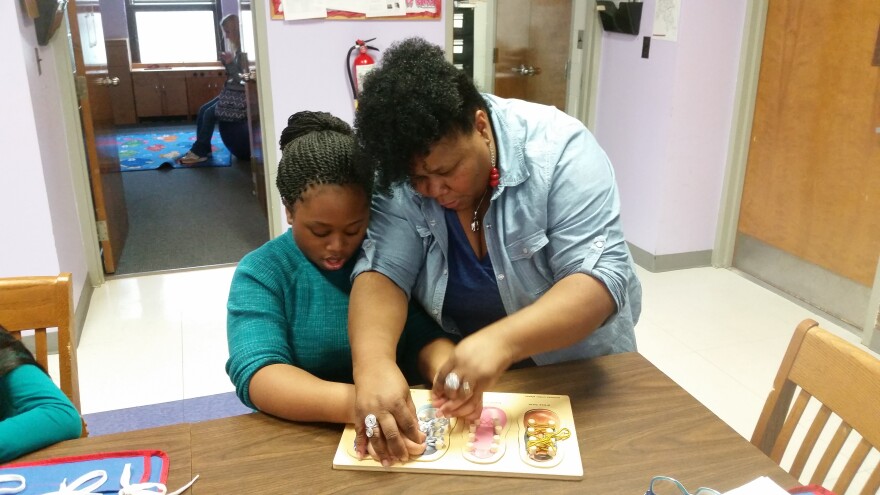On a recent Wednesday afternoon, high schooler Antoinette Ray tried to vacuum her dorm room without bumping into anything.
For the 16-year-old, the task isn't just a chore.
“If I want to live by myself, I’m gonna have to learn how to vacuum my own floor without somebody being there,” she said.
Antoinette lost her vision at 13 as a result of glaucoma.
“Not having vision and learning how to do things in a different way was scary because I was thinking more,” she said, “how do other blind people accomplish what they want to do with having no vision?”
Antoinette said she felt isolated at her neighborhood public school. She was the only student there with a visual impairment.
A team of educators from her school district suggested she attend Governor Morehead School, North Carolina’s only state residential school for the blind.
It’s located in Raleigh, an hour away from Antoinette’s home. The teen stays in one of the school’s dorms during the week and visits her family in Burlington on weekends.
“When I first started here, I was very homesick and I didn’t wanna be somewhere without my parents,” she said. “Now that I’ve gotten a lot older, um...it’s cool!”
Antoinette has learned to do everyday tasks by herself, like cooking, cleaning and walking around campus.
This is as important as academics for visually-impaired students, according to Governor Morehead’s director of student life, Laura Wooten.
“Each child has a goal sheet, where we identify areas that they need assistance in, in helping them to live as independently as possible when they leave Governor Morehead School,” Wooten said.
That means going step by step with students through skills that sighted individuals take for granted, like tying shoes or using a microwave.

“There are several students [with whom] it’s not just the visual impairment that we’re dealing with,” said Wooten. “There’s some learning, cognitive issues. And even with that, we’re able to meet the student on their individual level.”
For Antoinette, being an individual means competing on her school’s cheerleading team.
“At my middle school I used to go to before I got here, I was not able to cheerlead, because I was visually-impaired,” the teen said. “So I figured, if I see other visually-impaired students at Governor Morehead cheerleading and doing track...then why can’t I do it?”
Despite the wraparound services Governor Morehead provides, its enrollment has dropped dramatically in recent years.
Dr. Barbria Bacon, the school’s director, said that’s partly because fewer kids are now born with visual impairments. But she also says larger, urban school districts are hiring their own support staff for blind students.
“So [students are] able to actually stay in their neighborhood schools and receive the services,” Bacon said.
This year, Governor Morehead is educating between 55 and 60 students at a cost of $5.6 million to the state.
“People look at what it costs to send a child to the state school for the blind, versus the per pupil cost of sending them down the street,” Bacon said. “It leads people to the opinion that it’s too expensive to send the child to the residential school.”
As a cost-cutting measure, legislators have proposed closing the school more than once in the past decade.
Bacon argues that the cost is a long-term investment.
“If they can’t figure out what to wear when they get up every day, if they can’t get themselves dressed,” she said. “If they can’t fix them something to eat for breakfast and then realize what they’re going to do for lunch or dinner. If they can’t get out of the house to go to a job…”
Then, Bacon said, taxpayers foot the bill for supporting these individuals -- from the time they leave public education, for the rest of their lives.









